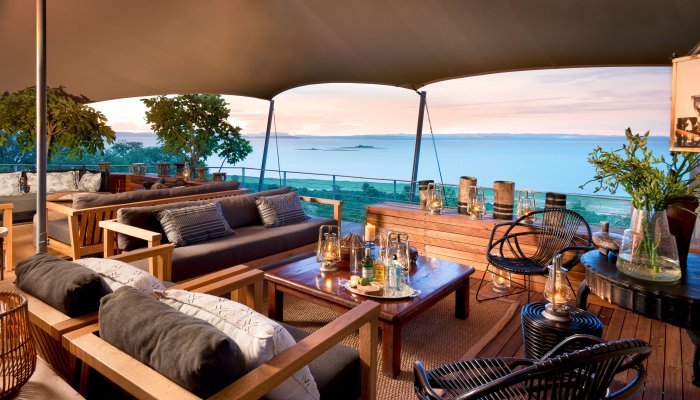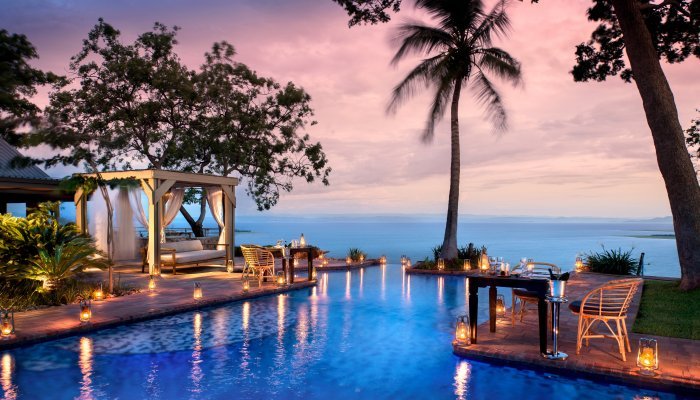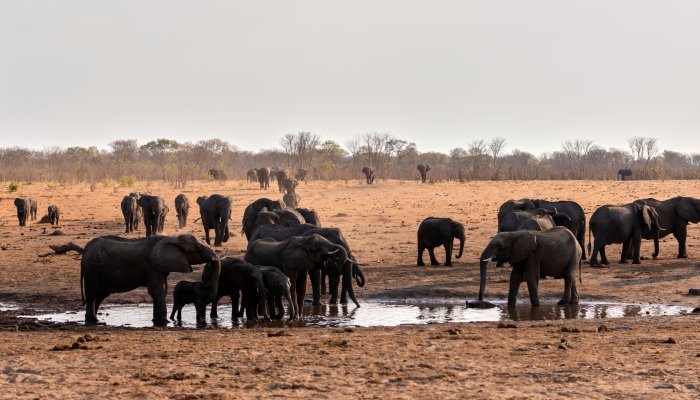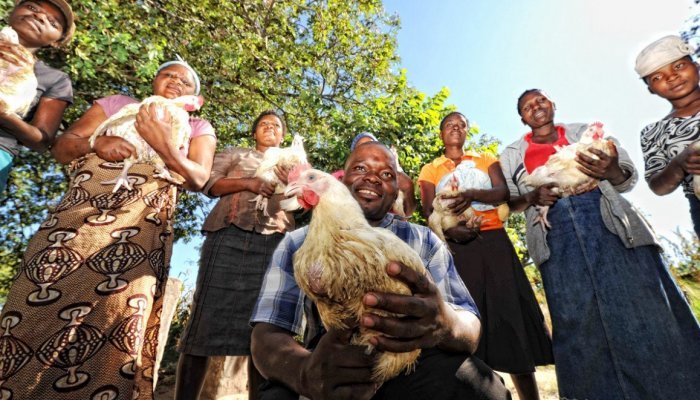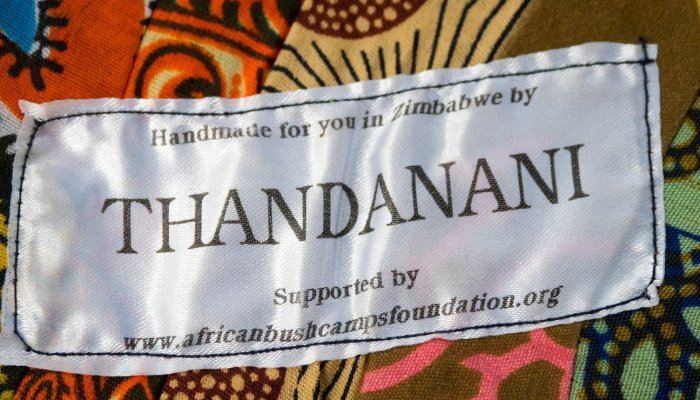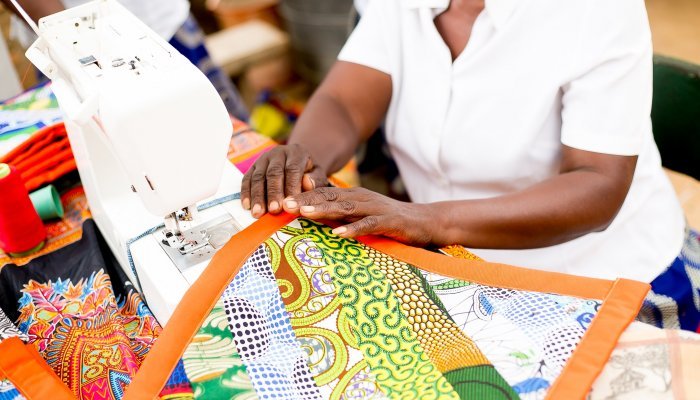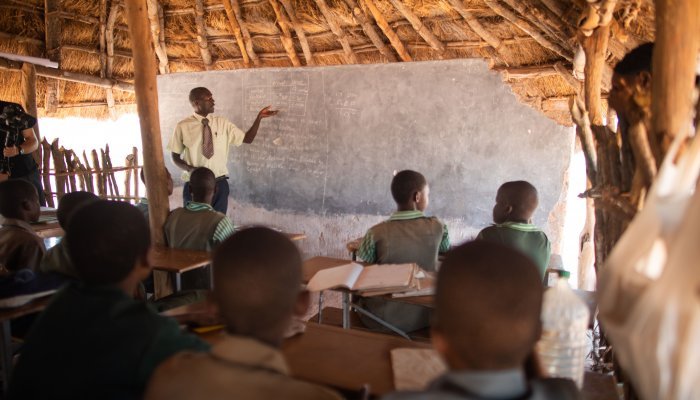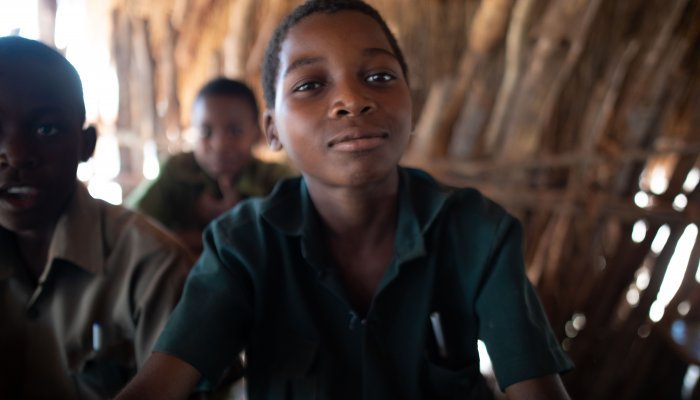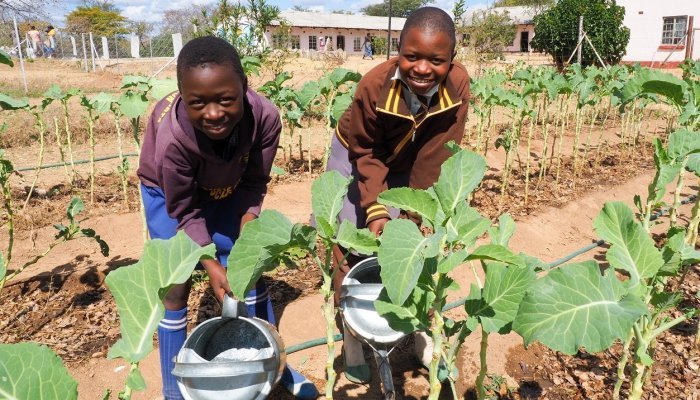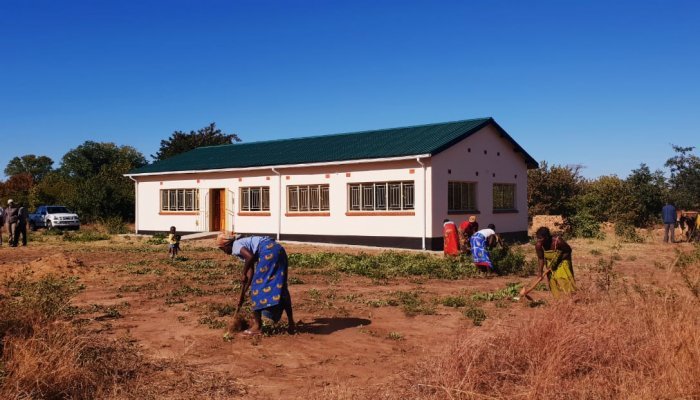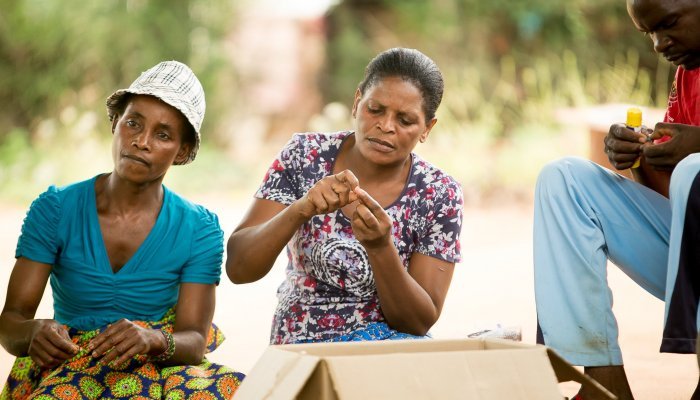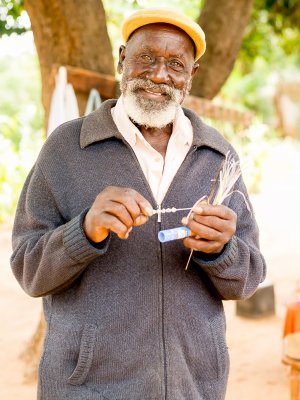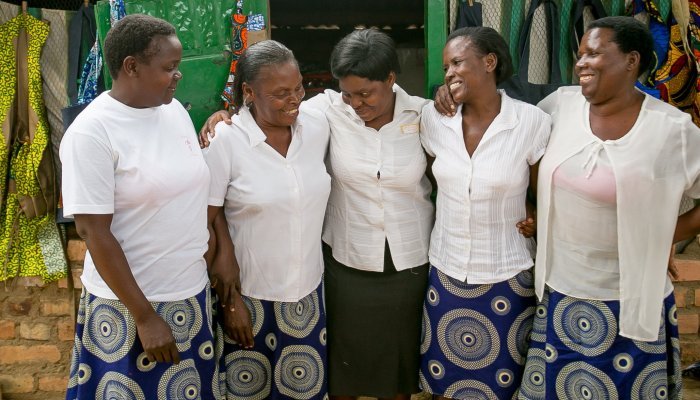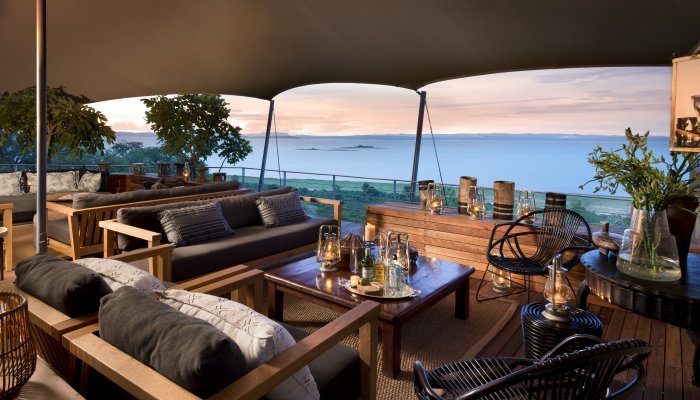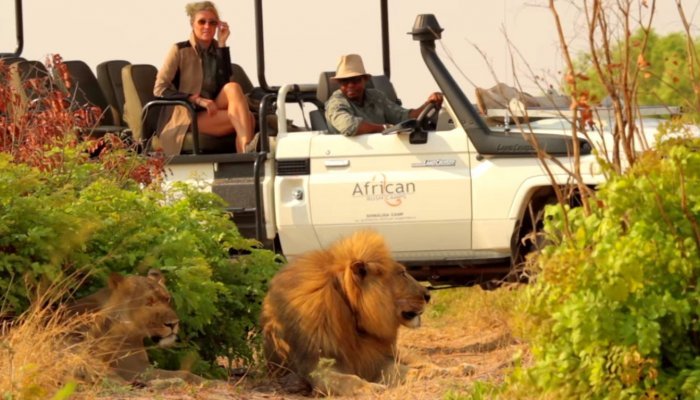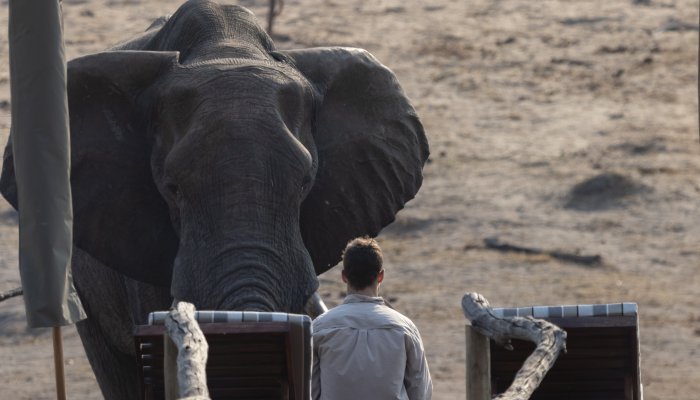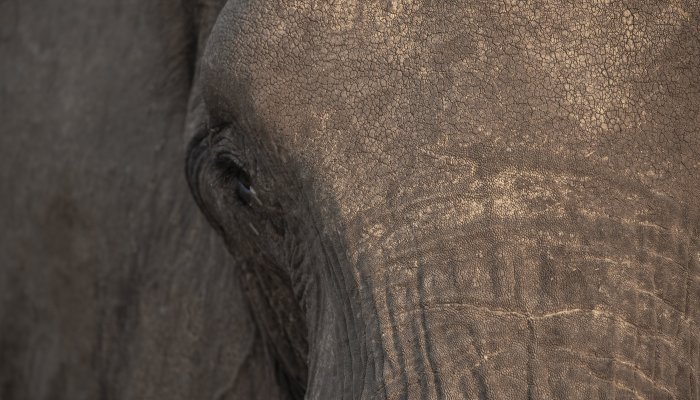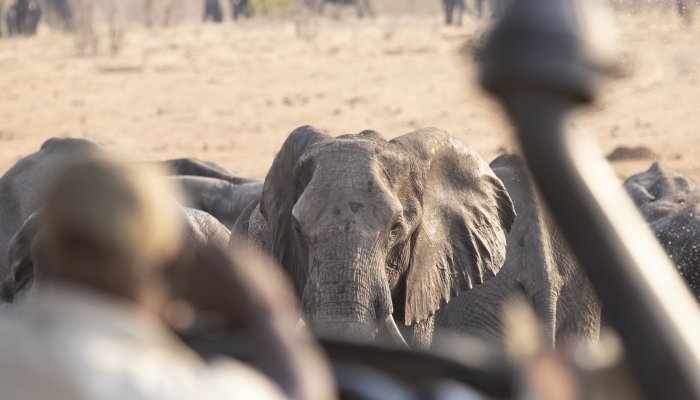Gorillas share 98% of their DNA with human beings. This makes them vulnerable to infections from us and is the reason some responsible tour companies in Central and East Africa closed as soon as the coronavirus pandemic began to spread.
“When you go on these expeditions, you go in wearing masks. There are strict rules on how much time you spend and how close you get,” says Beks Ndlovu, founder of African Bush Camps. “An infection could be passed on to the gorillas and could wipe out the entire population.”
But Ndlovu’s immediate concern was on people, not primates, specifically the staff at African Bush Camps, which operates over a dozen properties in Botswana, Zambia, and Zimbabwe.
“We had to respond right away,” he recalls. “For a lot of our staff in remote locations, with little access to international news, it was important to let them know what was going on in the rest of the world.”
Saving every job
With systems in place to alert staff, the next objective was to make sure guests were safe. But things escalated and the dynamics changed. Closed borders and travel bans meant no visitors, especially from key source markets.
“We’ve got empty camps, but we haven’t closed them down,” Ndlovu says. “These facilities need to stay open or they’ll go to ruins. We have an asset that we need to protect and keep. We also have a responsibility to the environment to make sure that we don’t completely lose the resource during this difficult period.”
Ndlovu acknowledges how difficult it has been, especially for communities that depend on wildlife. As someone who has seen the positive difference tourism makes when it comes to conservation and development over the past 15 years, his first priority has been on keeping that alive.
“We’ve got over 600 people in the entire organisation,” he says. “We appointed every one of those positions because we felt that we needed them for the strategic growth of the business. In light of that, we made a decision to keep every single job for the interim period. And so, while we go through what we call the ‘curl up’ period, where we are putting the camps into hibernation until borders open, we’ve managed to save each job.”
Engaging with communities
To keep staff motivated, African Bush Camps is getting those who wouldn’t normally be involved in the wildlife aspects – waiters, cleaners, and the like – to learn more about conservation, be it through game drives in the bush or nature walks with professional guides. Rotating people between camps and across roles allows knowledge to spread.
“The level of information going to the wider communities has been slow,” he admits. “We’ve done a bit in terms of trying to inform our staff, which hopefully cascades into the community. But I think the reality of people’s earnings suddenly shrinking, and people going back to their communities because they do not have work, hits home. It makes them see that Covid-19 isn’t some far-fetched discussion or something happening on somebody else’s land. It’s here and it’s real.”
This situation has highlighted the need to make sure staff and communities are fully on board and benefiting from what African Bush Camps does for the environment. The fact that there has been such high support during the transition makes Ndlovu eager to be even more involved in the future.
“Today’s communities are more vulnerable than they’ve ever been so it’s important to make sure we’re engaging with them on an even stronger note than we ever have,” he says. “We need complete community buy-in so that we can take everybody along with us through this painful journey. That will hopefully ensure that these areas are protected in the end.”
Advocating for Africa
As much as people are eager to travel, Ndlovu believes that they will only do so when they know it’s safe. African Bush Camps was set to have a busy period in May, but it now hopes to welcome guests from August, all the while knowing this might be an optimistic target and not possible until the end of the year.
“When this started, everybody thought it would blow over in a couple of weeks,” he says. “But what we’ve learned over the last few months is that it’s here to stay. We have to make adjustments for the new normal. I don’t think it’s going to go on forever, but we don’t expect that things will let up, in the immediate term, until vaccinations and treatments are discovered.”
Given that African Bush Camps gets bookings year-round, and sometimes up to 12 months in advance, there have already been enquiries for 2021. The focus is on getting people to postpone their travels rather than cancelling them. African Bush Camps is also encouraging people to book ahead of time because “the survival of tourism is the survival of these wilderness areas, the wildlife, and the communities”.
“It takes an enormous amount of capital to keep people employed and to keep communities motivated and hopeful about saving wildlife on their doorstep,” he says. “And every bit of support that comes from travellers booking their future holiday or not cancelling their existing one will go a long way, not only for our survival but for the survival of many good travel companies that are advocating for Africa. So, one of the greatest things people can do is reschedule their trips. Many tourism organisations are giving flexible terms, at no extra cost, to make sure people take that holiday when they can.”
Enjoying wide open spaces
Ndlovu believes that Covid-19 means the start of a new era in travel and conservation. It could also be the end of over-tourism as people stay away from mass attractions and visit wilderness areas instead. Perhaps people forced to spend time under lockdown, stuck in small apartments in densely populated cities, will now want to enjoy wide open spaces where other individuals are far away.
“I think there’ll be a shift in the style and the way in which people view travel, particularly in our market,” he says. “We’ll see a definite rise in wilderness travel, where people are going to remote areas without the crowds – exclusive places that are much smaller and where people can actually interact but at a safe distance, as opposed to areas that are congested with a lot more people and there’s a higher chance of contracting the virus.”
While it hopes for the best, African Bush Camps is prepared for the worst. But even if it receives zero income for the rest of 2020, it will still be able to engage with its employees and communities. Of course, anything might happen in the meantime. Indeed, given that it is not immune to the effects of the global economy, it is taking a cautiously optimistic “wait and see” approach.
“What we’re experiencing now is what few people in this current generation have ever experienced,” Ndlovu says. “And whilst we as Zimbabweans have gone through a difficult period economically and politically in the past, this experience is different from any other. But it has given us some resilience and helped us rally our teams along. Everyone is positive, looking ahead, and asking how they can make this an efficient ride and how we can share the pain. We’re in this fight together and we’ll come through it together, too.”
Bumi-Hills anti-poaching unit
The entirely self-funded Bumi-Hills anti-poaching unit at Lake Kariba in Zimbabwe relies on income from ‘bed night levies’ to support its efforts. But with lodges empty, there is a risk it will have to scale back operations.
“It’s a definite problem and of extreme concern,” says unit head, Mark Brightman. “We went through a similar situation in the mid-2000s. We rose to that challenge and we came through it. We are hoping we’re going to be able to do the same now. Obviously, it’s a different set of circumstances but we’re continuing as normal. We’ve just got to deal with the situation as best as we can with the resources available.”
There’s already been a dramatic rise in the wire-snaring of wild animals. Brightman believes this is understandable given the economic situation caused by the lockdowns. How long it lasts and how far it goes is anyone’s guess, although he wouldn’t be surprised if hungry people set aside their morals and become poachers out of desperation.
“We’ll see a definite increase,” he admits. “But even though we’ve had a big problem with elephant poaching in this area in the past, we’ve managed to reverse that trend. African Bush Camps and its foundation, doing a lot of awareness work in the communities, played a large part in lessening the effect.”
For now, patrols are unaffected. And while Brightman says there will always be someone on the ground, he is not sure what the situation might be like in a few months from now. “We’re doing what we can, patrolling the areas and letting the would-be poachers know that we’re still operating and are still a force to be reckoned with,” he says. “I’m confident that we’ll deal with these issues. Even though we’re faced with these challenges, we’ll rise to meet them. We’re resilient people and we’re here to stay.”
Even though “everyone is running scared”, Brightman is confident that travel will return, albeit with extra precautions. “Humans need to get out,” he says. “People will overcome their fears and the virus will eventually end, as we’ve seen with other illnesses. It’s going to be a challenge; there’s no doubt about it. But we’ve got to keep focused and do what we do. We’ve got to look after the resource for when everyone gets back.”
The unit welcomes and appreciates any and all forms of support.
Closed borders and travel bans meant no visitors...
We need complete community buy-in...
...a definite rise in wilderness travel, where people are going to remote areas without the crowds ...


